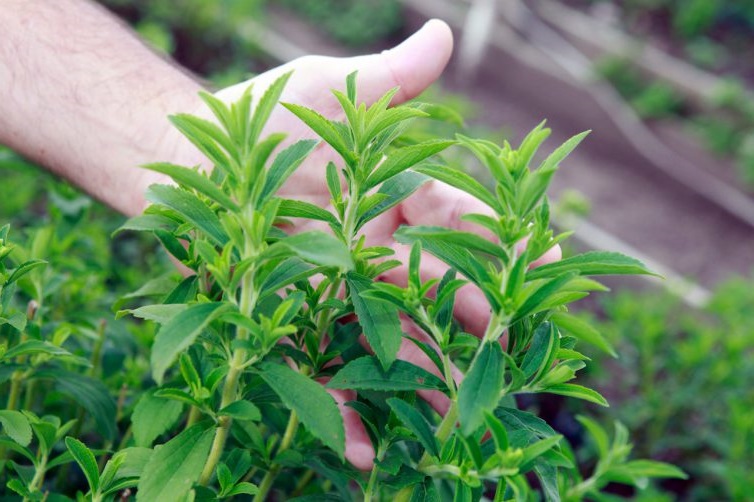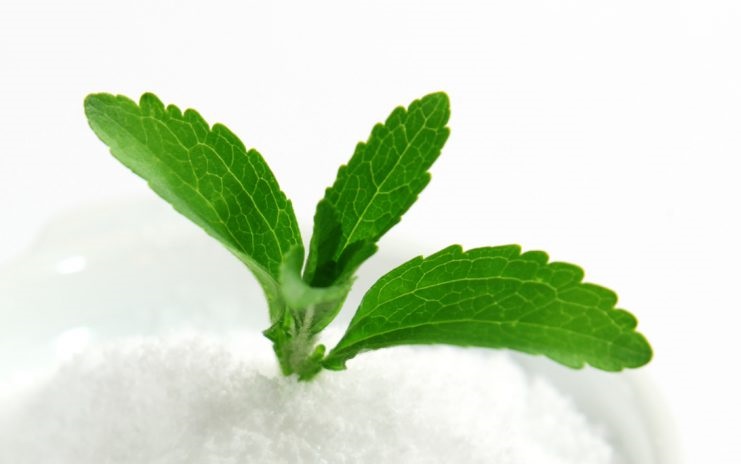Stevia - All you need to know

Stevia is a vegetable sweetener that provides a healthy alternative to traditional granulated sugar. Koch-Mit shows what is behind the sugar substitute and the benefits it brings.
Many people use sweeteners as an alternative to sugar to reduce their sugar consumption. The sweetener from the stevia plant is also often used. This is because the sugar substitute is not only much sweeter than sugar, it is also low in calories and does not cause tooth decay. So is stevia the miracle cure par excellence? We reveal everything worth knowing about the popular sugar substitute.

ORIGIN AND USE OF STEVIA
Stevia is a mixture of substances that is used as a sweetener and is extracted from the plant "Stevia rebaudiana". The stevia plant originally comes from South America. There it is found in the rainforests of Brazil and Paraguay, among other places. The perennial occurs in many different species, of which only a few have the natural sweetness.
From these plants, which are suitable for further processing, concentrated powders and liquid concentrates are obtained through drying and extraction processes, which we then use as a sugar substitute. Since 2011, the sweeteners called stevioglycosides extracted from the stevia plant have been approved in Europe. The food industry also uses the sweetener, which can be identified on the list of ingredients under the identification number E960.
The sweet leaves of the plant and the sweeteners made from them have zero calories. Moreover, unlike sugar, they spare our teeth. Furthermore, Stevia Sweetener gained its popularity through scientific findings that attribute further benefits to the plant.
THE ADVANTAGES OF STEVIA
Stevia-containing foods have been consumed in South America for several hundred years and are even used for medical purposes. So long before the positive health effects were proven. One of the most important advantages is that obesity and diabetes can be controlled with the help of Stevia. Because Stevia replaces highly glycemic sugar and thus stabilizes the blood sugar level. Furthermore, the Stevia plant contains micronutrients that have a positive influence on natural weight control. According to a study, it is also said to be beneficial for the health of the cardiovascular system and the immune system. However, the plant's properties can only be seen as a support for an already healthy lifestyle.

THE DISADVANTAGES OF STEVIA
If you take off the pink-red glasses, it becomes clear quite quickly that Stevia is not the sugar of the angels. For example, many people find the taste of the sugar substitute to be something that takes some getting used to. In addition, although "Stevia rebaudiana" is a plant, the sweetener is obtained through many chemical processes. In addition, many industrially produced foods also contain sugar or other sweeteners. Therefore you should always take a look at the contents and nutritional value tables.
SIDE EFFECTS OF THE SUGAR SUBSTITUTE
Rest assured, the use of Stevia is at least as well tolerated as other sweeteners that are approved for food. The same applies to diabetics. Moreover, no allergic reactions have been associated with the sugar alternative so far. Nevertheless, the consumption in moderation applies. As with all foods, excessive consumption can lead to side effects under certain circumstances.
HOW MUCH STEVIA INSTEAD OF SUGAR?
The sugar alternative exists in various forms. Therefore, the correct dosage of the sweetener is not always easy. Stevia as a granulate is used approximately 1:1 like sugar and is therefore ideal for baking, for example. The powdery alternative can also be sieved or mixed with other ingredients just as well as sugar. In addition, there is the sugar substitute in liquid form, which is usually very highly concentrated. Here, a few drops (about 2-3) already correspond to a sugar cube. Stevia tabs are particularly practical for sweetening hot drinks. The small tablets are easy to dose and correspond to about two lumps of sugar per piece. To achieve the desired sweetening level, however, some experimentation will be necessary.